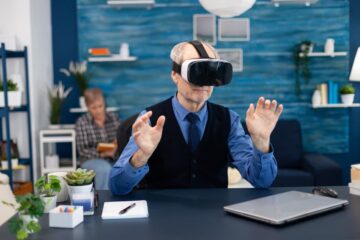Enhancing Emergency Services with Mobile Phone Tracking Technology
In today’s fast-paced world, where every second counts in an emergency, the integration of technology into emergency services has become paramount. Mobile phone tracking technology has emerged as a powerful tool in this regard, revolutionizing the way emergency responders operate and enhancing their effectiveness in critical situations.
The Role of Mobile Phone Tracking in Emergency Situations
Mobile phone tracking technology enables real-time monitoring of the location of mobile devices. This capability is invaluable in emergency situations, allowing emergency responders to pinpoint the exact location of individuals in distress quickly. With mobile tracking, response teams can reach the scene of an emergency with unprecedented speed and accuracy, potentially saving precious lives.
Moreover, mobile phone tracking facilitates improved coordination among different emergency responders, such as police, fire departments, and medical services. By sharing real-time location data, these agencies can collaborate more effectively, ensuring a more organized and efficient response to emergencies.
Benefits of Phone Tracking in Emergency Services
The adoption of mobile phone tracking technology in emergency services offers a multitude of benefits. Firstly, it significantly enhances the chances of saving lives by enabling rapid response times. In life-threatening situations such as accidents or medical emergencies, every second matters, and the ability to locate individuals quickly can make all the difference.
Furthermore, mobile tracking helps minimize property damage by allowing emergency responders to intervene promptly and prevent the escalation of emergencies. For example, in the case of a fire, firefighters equipped with real-time location data can reach the scene faster and contain the blaze before it spreads further.
Additionally, phone tracking technology aids in mitigating risks during emergencies by providing responders with critical information about the situation on the ground. This allows them to assess the severity of the emergency and deploy appropriate resources accordingly, thereby reducing the likelihood of accidents or casualties.
Challenges and Concerns
Despite its numerous advantages, the widespread adoption of phone tracking technology in emergency services is not without challenges. Privacy concerns loom large, as the use of location tracking raises questions about individual privacy rights. There are also technical limitations to consider, such as accuracy issues in densely populated urban areas or remote rural regions.
Moreover, the legal framework surrounding the use of mobile phone tracking technology in emergency services is still evolving. There are various regulations and guidelines governing the collection and use of location data, and ensuring compliance with these regulations poses a significant challenge for emergency service providers.
Overcoming Challenges
Addressing these challenges requires a multifaceted approach. Firstly, robust privacy protection measures must be implemented to safeguard the personal data of individuals being tracked. This may include obtaining explicit consent from users before tracking their location and implementing encryption techniques to secure location data.
Furthermore, ongoing technological advancements are essential to improve the accuracy and reliability of mobile phone tracking systems. Innovations such as enhanced GPS algorithms and the integration of other sensor data can help overcome the technical limitations currently associated with location tracking technology.
Additionally, emergency service providers must work closely with policymakers and regulatory bodies to ensure compliance with relevant laws and regulations. This may involve lobbying for updates to existing legislation to reflect the realities of modern emergency response practices.
Case Studies
Several real-world examples illustrate the effectiveness of mobile phone technology in enhancing emergency services. For instance, in cities where mobile phone systems have been deployed, emergency response times have been significantly reduced, leading to more positive outcomes for individuals in distress.
Moreover, studies have shown that the integration of mobile phone technology into emergency services has resulted in a measurable decrease in the severity of emergencies and the associated loss of life or property damage. This highlights the tangible impact that technology can have on improving the overall effectiveness of emergency response efforts.
Read More: Record A Phone Call Without knowing mobile tracking
Future of Mobile Phone Tracking in Emergency Services
Looking ahead, the future of mobile phone tracking technology in emergency services appears promising. Continued advancements in technology, such as the development of more accurate positioning systems and the integration of artificial intelligence, will further enhance the capabilities of mobile phone tracking systems.
Moreover, the integration of mobile phone tracking technology with other emerging technologies, such as drones and Internet of Things (IoT) devices, holds the potential to revolutionize emergency response practices. These synergies will enable responders to gather real-time data from multiple sources and coordinate their efforts more effectively, resulting in faster and more efficient emergency response operations.
In conclusion, mobile phone tracking technology has emerged as a game-changer in the field of emergency services, offering unparalleled capabilities for real-time location tracking and coordination. While challenges remain, proactive measures to address privacy concerns, overcome technical limitations, and ensure regulatory compliance can pave the way for the widespread adoption of this transformative technology, ultimately leading to safer and more resilient communities.
FAQs:
- Is mobile phone tracking technology accurate enough for use in emergency services?
- Yes, modern mobile phone tracking technology utilizes advanced GPS and triangulation techniques to provide highly accurate location data.
- How do emergency responders ensure the privacy of individuals being tracked?
- Emergency responders must adhere to strict privacy protocols and obtain consent when tracking individuals’ locations. Data encryption and secure storage practices also help protect privacy.
- What happens if someone doesn’t want to be tracked during an emergency?
- Individuals have the right to opt out of location tracking during emergencies. However, doing so may impede the effectiveness of emergency response efforts.
- Are there any legal implications associated with the use of mobile phone tracking technology in emergency services?
- Yes, emergency service providers must comply with relevant laws and regulations governing the collection and use of location data. Failure to do so may result in legal consequences.
Leave a reply
You must be logged in to post a comment.







